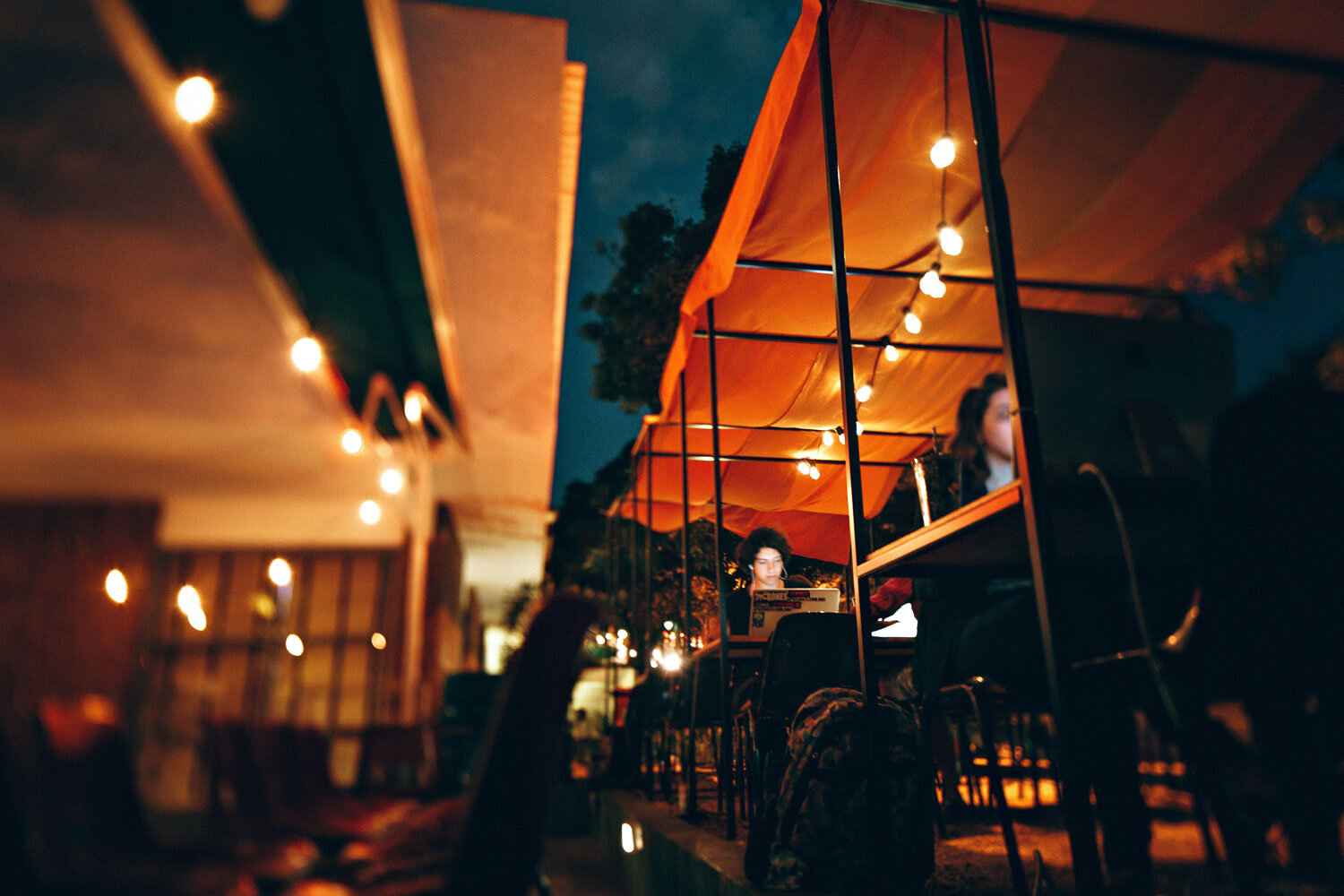
D Street Businesses
The Aerie
Concert hall and performance venue in one of the oldest buildings on D Street, lovingly restored to its original grandeur. An intimate yet spacious setting for live music and theater. Corner of D Street and Randolph’s Alley.
Alexandria
The South’s leading retailer of books on mythology, folklore, and alternative spirituality. Many rare and valuable volumes not available elsewhere. 10-8 Mon.-Thurs. or by appointment. 319 D Street.
Black Widow
Clothing store for stylish people of all genders. Both new and consignment items for sale. Specializing in apparel for ceremonies and rituals. 12-9 Tues.-Sun. 440 D Street.
Clyde Braveboy, Necromancer
Communication with the departed; banishment of restless spirits; lifting of tomb curses; location of missing remains. Results in this world and the other world. By appointment only.
Hel
The hottest fetish club in Atlanta. Live fetish performances, play areas, dance parties, theme nights, audience participation events, and more. Dress code strictly enforced. 21 and up. 527 D Street.
Carson Kimball, Fairy Doctor
Interceding on your behalf with the Good People. Opening portals, finding the lost, lifting a blight, detecting changelings, treating the symptoms of elf-shot. By appointment only.
Simon Magus
Shop offering curios, jewelry, gifts, books, and the largest selection of magic supplies between New Orleans and New York. Offering classes on spellcraft, divination, and other magical topics. Readers available for walk-ins or by appointment. 11-9 Mon.-Sun. 328 D Street.
Marinetti’s Future
Art gallery presenting the work of local, national, and international artists working in modernist and postmodernist modes. Painting, sculpture, sound, video, performance, installation, and conceptual. 2-6 p.m. Tues. and Thurs. or by appointment. 143 D Street.
The Oracle
Divination-themed candlelit restaurant featuring plant-based cuisine drawing on global culinary traditions. Live music every Thursday night and for Sunday brunch. 11-11 Mon.-Thur., 11-12 Fri.-Sat., 10-10 Sun. 219 D Street.
A few of our favorite neighbors
Cabbagetown Neighborhood Improvement Association
Cabbagetown is a neighborhood on the east side of Atlanta, Georgia, United States, abutting historic Oakland Cemetery. It includes the Cabbagetown District, a historic district listed on the U.S. National Register of Historic Places and one of Atlanta’s oldest industrial settlements. After the Atlanta Rolling Mill was destroyed in the Battle of Atlanta, Jacob Elsas, a German Jewish immigrant, began operations of the Fulton Bag and Cotton Mill, in 1881. Cabbagetown was built for the workers of the South’s first textile processing mill.
Candler Park Neighborhood Organization
Candler Park is a large residential neighborhood developed primarily in the late 19th and early 20th centuries. It was founded as Edgewood, a small suburban community in DeKalb County halfway between Atlanta and Decatur. (Pro tip: The Candler Park Golf Course is one of the best local places to do outdoor magic at night.)
Inman Park Neighborhood Association
Inman Park is Atlanta’s first planned residential suburb and also Atlanta’s first electric trolley neighborhood. Created at the cusp of the twentieth century, this ideal Victorian neighborhood — curved streets, generous residential lots and verdant parks — was built upon the wrecked land of Atlanta’s Civil War battlefield, two miles east of Downtown Atlanta.
Little 5 Points Alliance
Little 5 Points is a district on the east side of Atlanta. It was established in the early 20th century as the commercial district for the adjacent Inman Park and Candler Park neighborhoods, and has since become famous for the alternative culture it brings to Atlanta. It has been described as Atlanta's version of Haight-Ashbury, a melting pot of sub-cultures, and the Bohemian center of the Southern United States.
Sweet Auburn District
Concentrated along a short mile and a half of Auburn Avenue, the Sweet Auburn Historic District reflects the history, heritage and achievements of Atlanta's African Americans. The name Sweet Auburn was coined by John Wesley Dobbs, referring to the "richest Negro street in the world." Like other black communities throughout the country, Sweet Auburn's success was intricately tied to the residential patterns forced on African Americans during the early 20th century--the result of restrictive laws in southern states which enforced segregation of the races, known as Jim Crow laws. It was here that many African Americans established businesses, congregations, and social organizations.
West End
Atlanta’s West End is a vibrant community known for the diversity of its residents, who represent many different economic, cultural, ethnic and religious backgrounds. The spirit of neighborhood is reflected in a strong sense of community and enthusiastic resident involvement. Founded as White Hall in 1835, the area the area now known as West End was an important crossroads. In the late 1840s, the Macon and Western Railroad line (later Central of Georgia Railroad and now a “paper railroad” within the Norfolk Southern Railway group) was established to provide easy access to downtown Atlanta and quickly increased the economic viability of the White Hall area. Shortly thereafter, real estate speculators, including George Washington Adair, John Thrasher and Thomas Alexander, bought lots along the railway, anticipating future growth. In 1868, the residents of the area received a charter and renamed the community West End, after London’s trendy theater district.

